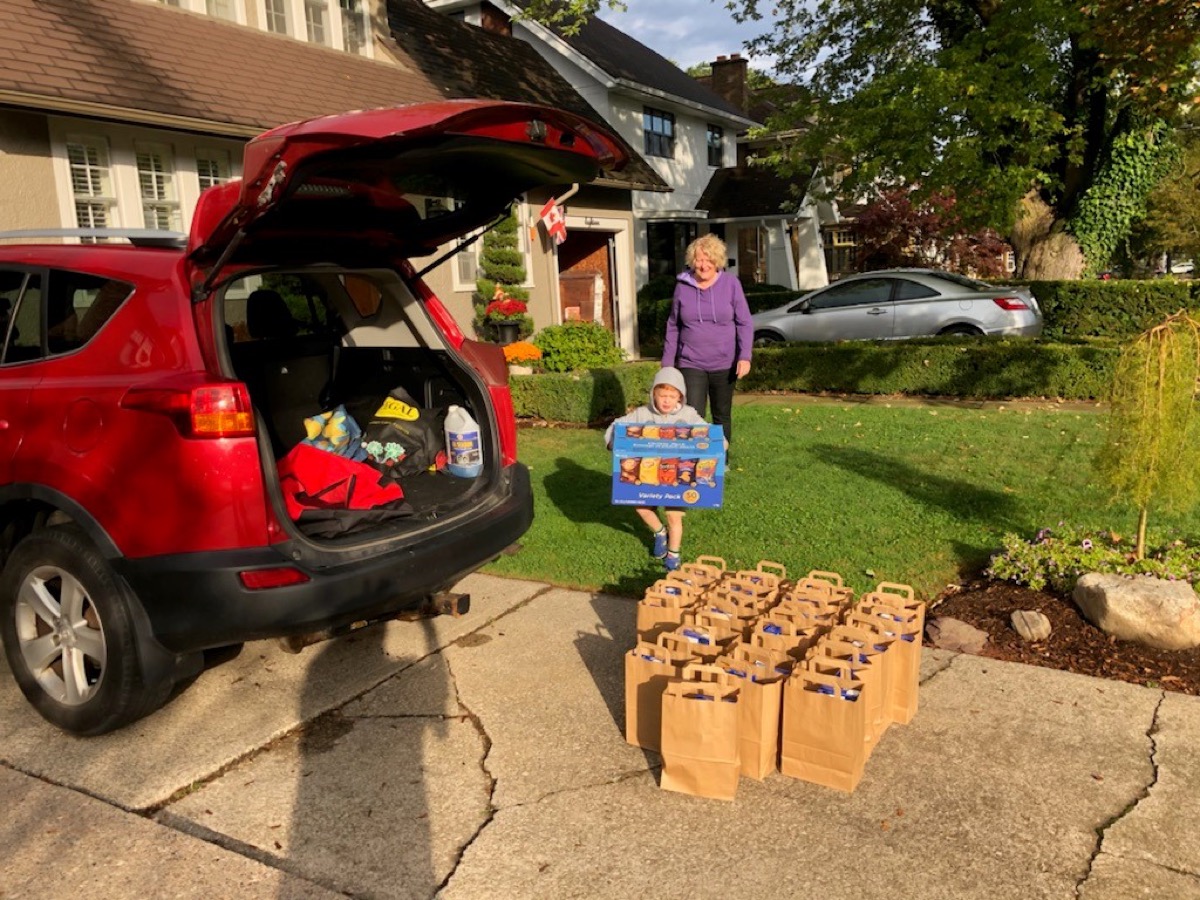This year, the Walking on Water (WOW) Grants program supported four projects providing $58,233 in financial support. WOW grants provide support and encouragement for new ministry initiatives within the diocese.
The WOW Grant discernment journey is a process, which involves a call for applications in the fall, initial discernment by a volunteer team of people from throughout our diocese, and a discernment day in early January where applicants present their case for support and answer questions posed by the volunteer team. Decisions are then made and shared that same day with applicants.
“It’s lovely seeing out-of-the-box thinking,” said Canon Christyn Perkons, director of congregational support and development. She has been leading the WOW Grants process since its inception in 2014. Grants are available to parishes, chaplaincies, missions, and other related affiliates of the Diocese of Niagara. One-time grants of up to $20,000 can be applied for a new ministry, program, project, or for an existing ministry to take it to the next level. The overall goal of the WOW Grants program is to support initiatives that launch transformational, creative, innovative, and inspiring ministries.
WOW Grants exists today due to the foresight of Bishop Michael Bird and the synod council of the day which set aside funds from the sale of property to provide an annual income stream for the grants.
Since 2014 over 66 missional initiatives have been supported by the Walking on Water (WOW) Grants program for a total of $525,085.
“The WOW application process is so inspiring. I just find the whole process very uplifting,” shared Rob Howard of St. Paul’s, Westdale, a committee member since 2019. Normally a two-year commitment, it was due to the pandemic that Howard was asked to stay on for another term. He was grateful to do so saying, “If you need me again, I’m always available for this process.”
WOW Grant applications must connect to the diocesan Mission Action Plan. An example of this is seen with the 2020 application of Grace Anglican Church, Waterdown. They applied to receive support for solar panel generation and storage that would enable the parish to power the whole building with a green energy source. While solar panels may not appear to renew or deepen faith, solar panels are, as one Grace Church parishioner reflected, “The new stained glass of our church buildings.”
The solar panels also tie into our diocesan objective to, “prioritize social justice action with an emphasis on environmental justice.” As Sue Ann Ward, rector of Grace Church, Waterdown so aptly shared, “recognising that we are experiencing a climate crisis . . . it is essential to the mission of Grace Anglican Church to move quickly towards net zero and to work with others to undertake the change necessary to preserve and protect God’s creation.”
Another inspiring example is the recent Greater St. Catharines Justice Committee’s (GSCJC aka Anglicans in Action) application. Near the start of the pandemic, the group began to respond to the growth of food insecurity in their area. They are partnering with the organization Community Care providing family meal kits that can be distributed easily through their food bank. The kits consist of a recipe and the required non-perishable ingredients needed for a nutritious meal for a family of four. The kits are delivered to two Community Care locations and, as Betty Lou Souter, CEO of Community Care shared, “we are so very appreciative of the fact that you [GSCJC] have been able to provide approximately 100 “Meals in a Bag” weekly between our St. Catharines and Thorold offices”.
Meal kits may not themselves be an innovative ministry. Instead, it is GSCJC’s focus on partnerships and learning about systemic issues surrounding food insecurity leading to advocacy that is innovative. For instance, plans are underway to make signs available for volunteers to show support for a living wage. With these signs comes learning so volunteers can engage in meaningful conversations with friends and neighbours curious about their sign.
As committee member, Nancy Neuman, from Church of the Epiphany, Oakville said, “WOW grants are a sign of vitality. Even the name makes me smile”. The WOW Grant program truly is a gift to the diocese from the diocese where together we can, “turn dreams into vibrant mission-centered ministries.”

Our Treasures and Us: A Time for Reflection